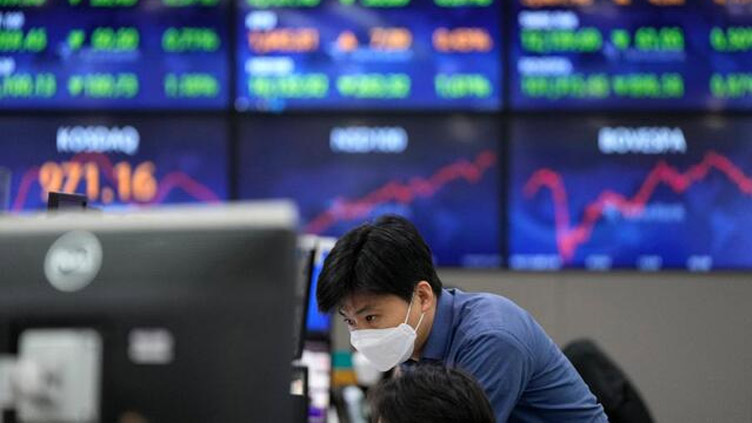Asian markets fail to extend rally, focus turns to Europe

Business
Hong Kong, Shanghai, Tokyo, Sydney, Singapore and Jakarta all fell.
HONG KONG (AFP) - Asian investors on Thursday struggled to maintain momentum from the previous day’s equity rally and keep up with another Wall Street advance as growth fears continue to haunt trading floors and sap risk sentiment.
While data last week suggested US consumer resilience appeared to be holding up despite surging inflation and rising interest rates, a closely watched oil stockpile report indicated elevated prices were keeping drivers off the road.
The figures highlighted the fluctuating landscape dealers are having to navigate as the global economy is rattled by a range of issues including the Ukraine war, an energy crisis and China’s slowdown and supply chain snarls.
And while corporate earnings have provided some much-needed relief so far, analysts remain cautious about the near-term outlook.
Focus is now on events in Europe, where the European Central Bank is set to hike rates for the first time in more than a decade, with most observers expecting a quarter-point lift and some speculating about a half-point move.
However, officials are walking a tightrope, as they must try to tame red-hot inflation while not tipping the economy over a cliff, all against the backdrop of an energy crisis sparked by Russia’s invasion of Ukraine.
Added to the mix is a fresh political crisis in Italy that could see Prime Minister Mario Draghi ousted, leading to months of uncertainty.
Europe is also awaiting the return of Russian gas supplies after 10 days of maintenance, with many fearing Moscow will keep the taps fully or partially shut -- hammering the economy -- as retaliation for sanctions imposed over its Ukraine invasion.
Vladimir Putin has said the Nord Stream 1 pipeline will be turned back on, but added that they would be limited unless a row over some elements of the sanctions is resolved.
- Energy as a weapon -
Western leaders remain cynical over his plans ahead of the northern hemisphere winter.
"Moscow is not shying away from using grain and energy deliveries as a weapon," German Chancellor Olaf Scholz said this week, referring to allegations Moscow was also deliberately blocking food exports from Ukraine.
The IMF warned Wednesday that a halt in supplies could slash 2022 GDP by 1.5 percent.
The European Commission has urged EU members to reduce demand for natural gas by 15 percent over the winter to counter Russia’s "blackmail".
After Wednesday’s bounce across Asian markets, uncertainty returned to trading floors.
Hong Kong, Shanghai, Tokyo, Sydney, Singapore and Jakarta all fell, though Seoul, Taipei and Manila eked out gains.
There was little reaction to Joe Biden’s comments that he would hold talks with Xi Jinping "within the next 10 days" as he decides whether or not to remove some Trump-era tariffs on Chinese goods.
And Cameron Dawson, of NewEdge Wealth, said the recent gains could not yet be taken as a sign of a recovery.
He warned that many equities were "still in very distinct downtrends so you can see a rally off maybe an oversold level, but really if you are not starting to recover and break into a better uptrend it really remains to be seen if this can continue".
"So it’s more a relief at this point and not necessarily a trend change."
Oil markets extended Wednesday’s drop -- with WTI below $100 -- after data showed US stockpiles rose more than expected last week as Americans opted not to pay for expensive petrol.
The figures come despite being at the height of the high-demand summer driving season.

